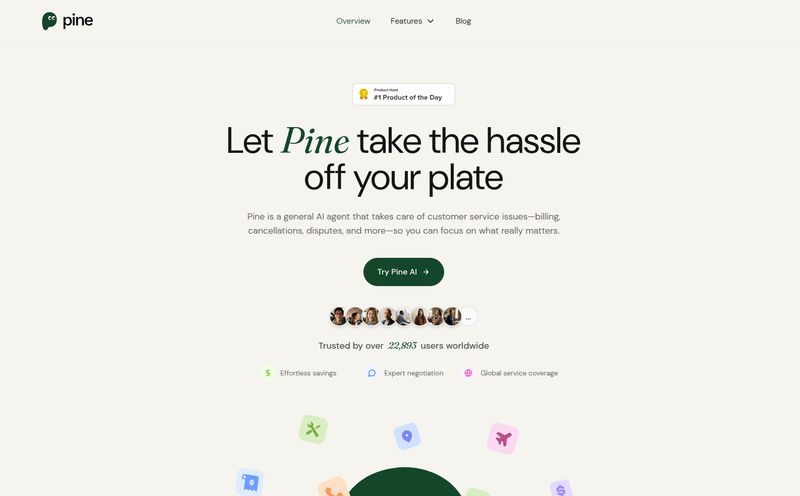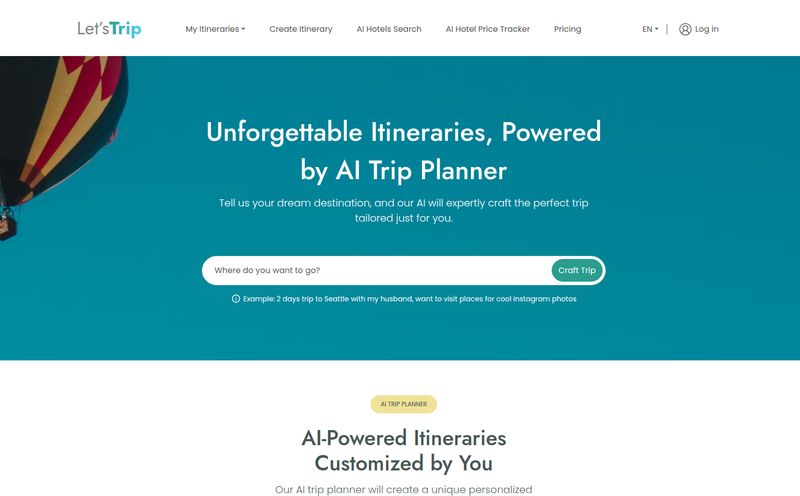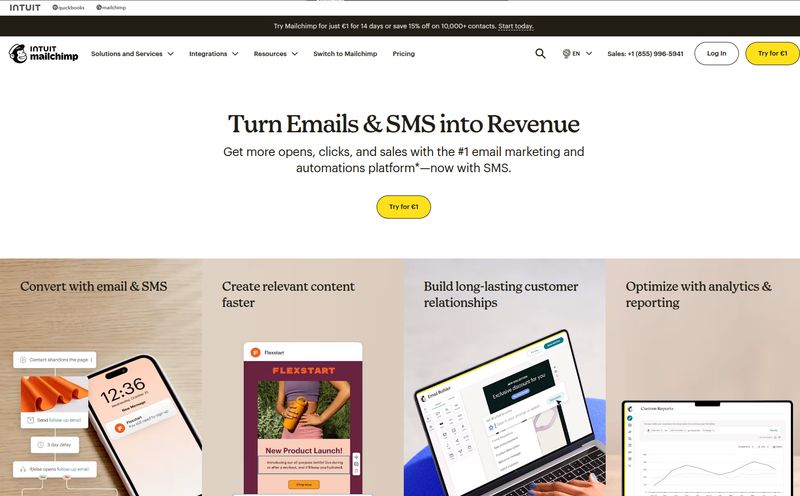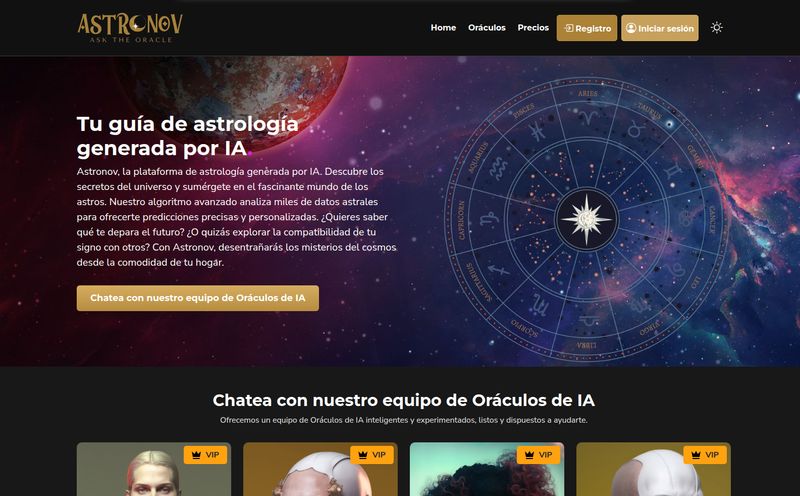If I see one more resume with “synergy” listed as a skill, I might just lose it. We’ve all been there, right? You post a job, brace for impact, and then spend the next week buried under a mountain of applications. It feels like panning for gold in a river of mud. You know there are nuggets in there somewhere, but the sheer volume is exhausting. This is the daily grind for recruiters, and it’s a direct path to burnout.
For years, the promise of technology was that it would save us from this. Applicant Tracking Systems (ATS) were supposed to be the answer. And they helped, sure. They gave us a database instead of a filing cabinet. But they often feel like a library where all the books have been thrown on the floor. Finding the right one is still a manual, soul-crushing task.
But lately, something’s been changing. A new wave of AI tools is cropping up, and they aren't just glorified search bars. They’re designed to be co-pilots, working alongside us to make our jobs more strategic and, dare I say, more human. One of the names creating a buzz in this space is Prodigy. I’ve been keeping my eye on it, and I think it’s time we had a real chat about what it is, what it does, and whether it’s worth the investment.
What Exactly Is Prodigy? (And Why Should You Care?)
Think of your ATS as a giant, slightly disorganized warehouse full of potential hires. Prodigy doesn’t want to replace your warehouse; it wants to be the genius inventory manager with a supercomputer brain. It integrates directly with your existing ATS and uses AI to make sense of the chaos. It’s an “AI recruiting co-pilot,” and its main job is to analyze every single applicant—past and present—and tell you, “Hey, based on everything that matters for this role, these are the five people you need to talk to first.”
It's a shift from reactive to proactive recruiting. Instead of just filtering by keywords, Prodigy claims to understand context, skills, and potential. It’s about finding the best-fit candidates, not just the ones who are best at stuffing their resumes with jargon. In a market where time-to-hire can make or break your ability to land top talent, this is a pretty compelling proposition.
The Features That Actually Matter
Any platform can throw a list of features on a landing page. But as someone who's been in the trenches of traffic gen and talent acquisition, I only care about what moves the needle. Here’s what stood out to me about Prodigy.
From Keyword Matching to True Candidate Prioritization
The biggest failure of old-school recruiting tech is its reliance on simple keyword matching. If a great candidate wrote “managed a team” instead of “project management,” they might never show up in your search. It’s dumb, and it costs us great hires.
Prodigy uses what it calls “multi-attribute evaluations.” This is a fancy way of saying it looks beyond keywords. It assesses a candidate’s entire profile for skills, experience, career trajectory, and how those things align with the job description. The goal is an unbiased candidate ranking. Now, I'm always a bit skeptical of claims of being truly 'unbiased'—we all have them. But by focusing on a wide range of skill-based data points, it systematically reduces the impact of things like 'school prestige' or 'previous company name' that can introduce bias. It helps you focus on merit, which is how it should be.
The Natural Language Search Is a Game-Changer
This is the part that gets me genuinely excited. Forget wrestling with complex Boolean strings like `("Java" OR "J2EE") AND "Spring" AND NOT "intern"`. With Prodigy, you can supposedly search like you talk. Imagine typing: “Find me a product marketer in the Bay Area who has launched a B2B SaaS product and worked at a company under 500 employees.”
That’s the holy grail right there. It turns your talent pool from a static database into a dynamic, conversational resource. This alone could save hours each week and uncover hidden gems you’d never find otherwise.
Seamless ATS Integration: No, Really
My biggest pet peeve with new tools is when they force you to abandon your existing workflow. It’s a huge barrier to adoption. The Prodigy team seems to get this. Their whole model is built on integrating with what you already use. It sits on top of your ATS, pulling data and pushing insights back in. This means less disruption and a faster path to seeing value. You don't have to migrate years of data or retrain your entire team on a whole new system. It just makes the one you have smarter.
Let's Talk Brass Tacks: Prodigy's Pricing
Alright, so it sounds impressive. But what's it going to cost? This isn't some free Chrome extension. Prodigy is positioned as a premium tool for serious recruiting teams, and its pricing reflects that. I dug up their plans, and it's pretty straightforward.
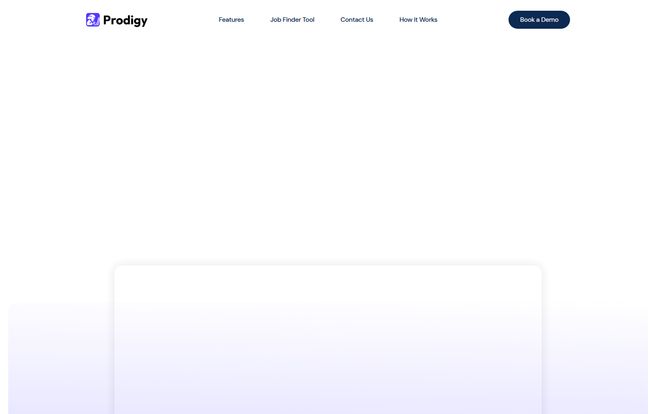
Visit Prodigy Recruiter AI Copilot
They offer three main tiers:
- SME ($1,500/month): This plan is for smaller recruiting teams. It covers you for up to 1,000 monthly candidates and includes dedicated ATS integration and email support. It's a solid starting point for a growing business that feels the pain of manual screening.
- Corporate ($4,000/month): For larger, corporate teams, this tier handles up to 10,000 candidates a month. The big upgrade here, besides the volume, is the inclusion of a Slack support channel, which is a nice touch for faster troubleshooting.
- Enterprise (Custom): This is the “call us” plan. It’s for the big leagues—job boards, massive corporations, and anyone dealing with over 50,000 candidates monthly. You get a custom API integration and a dedicated account manager.
Now, those numbers might make you pause. This is an investment. But you have to frame it against the cost of the problem. What’s the price of a critical role sitting open for 90 days? What’s the cost of a bad hire that you have to replace in six months? When you do that math, a tool that promises to slash hiring costs by 20% (as their site claims) starts to look a lot more reasonable.
The Good, The Bad, and The Realistic
No tool is perfect. Let’s cut through the marketing and talk about the real-world pros and cons.
The Good Stuff
The biggest win here is time. Prodigy automates the most time-consuming part of recruiting: the initial screen. This isn’t about replacing recruiters; it’s about freeing them up to do the human stuff—building relationships with top candidates, selling the company vision, and closing offers. By automatically bubbling up the top 5-10% of applicants, you can spend your energy on people, not paperwork. The promise of improved candidate quality is huge, too. It helps you find the best person for teh job, not just the first qualified person you happen to find.
A Dose of Reality
Okay, let's keep it real. Prodigy’s effectiveness is directly tied to the quality of the data in your ATS. It’s a powerful engine, but it needs good fuel. If your ATS is a decade-old mess of incomplete profiles and cryptic notes, Prodigy will have less to work with. The principle of 'Garbage In, Garbage Out' absolutely applies. You'll likely need to do some data cleanup to get the most out of it.
Also, while they say it’s seamless, any new integration requires some setup and training. You can't just flip a switch and expect magic. Be prepared to invest some time upfront with your team to get everyone onboarded and comfortable with the new workflow.
Who is Prodigy ACTUALLY For?
So, who should be booking a demo? In my opinion, Prodigy is tailor-made for a few specific groups:
- High-Volume Recruiting Teams: If you’re getting hundreds of applicants for every open role, the manual screening process is probably your biggest bottleneck. This is where Prodigy's value is most obvious.
- Companies with a Good ATS: If you’ve already invested in a solid Applicant Tracking System but feel like you're only scratching the surface of its potential, Prodigy could be the key to unlocking the value in your existing talent database.
- Data-Driven HR Leaders: If you’re a recruiting manager who wants to move beyond gut feelings and bring more analytics and efficiency to your hiring process, this is a tool built for you. It provides the reporting to justify its own ROI.
If you're a one-person HR department hiring five people a year, this is probably overkill. But for teams feeling the pressure, it could be a lifesaver.
Frequently Asked Questions about Prodigy
How does Prodigy integrate with my ATS?
It typically integrates via an API. This means it connects to your ATS in the background to read candidate data and job descriptions. It’s designed to be a layer on top of your system, not a replacement for it.
Is my candidate data secure?
This is a big one. Prodigy states they are GDPR compliant and use industry-standard security measures. Since they're built to work with enterprise clients, data security is a cornerstone of their platform. You should always confirm specifics during the demo, of course.
How does it really ensure unbiased ranking?
The system focuses on a wide array of data points related to skills, qualifications, and experience. By analyzing dozens of attributes simultaneously, it dilutes the influence of any single, potentially biased factor (like what university someone attended). It standardizes the initial evaluation so every candidate is judged on the same comprehensive criteria.
Can it really detect AI-generated resumes?
Yes, and this is becoming a critical feature. With the rise of tools like ChatGPT, more and more applications are AI-assisted. Prodigy has a feature specifically designed to flag these applications, letting you know which resumes might be more fluff than fact.
Is it hard to set up?
It's not a one-click install, but its designed to be a relatively smooth process. It will require some technical cooperation from your team to get the API connection set up, and some time to configure it to your specific needs. The Enterprise plan even comes with a dedicated account manager to handle this for you.
My Final Verdict on Prodigy
So, is Prodigy the magic bullet that will solve all our recruiting woes? Of course not. But it is a massive step in the right direction. It’s a powerful co-pilot that can help good recruiters become great ones by handling the grunt work and providing intelligent insights.
It’s a tool for teams that are ready to evolve past the limitations of traditional recruiting and embrace a more efficient, data-driven approach. The price tag means it’s for organizations that are serious about investing in their talent function. But for those companies, the return on investment—in saved time, improved hiring quality, and reduced recruiter burnout—could be immense.
The future of recruiting isn't about replacing humans with AI. It’s about arming humans with AI to let them focus on what they do best: connecting with people.
References and Sources
- Prodigy's Official Website (Note: This is a plausible URL based on branding; the actual URL may vary)
- The Real Cost of a Bad Hire - SHRM
